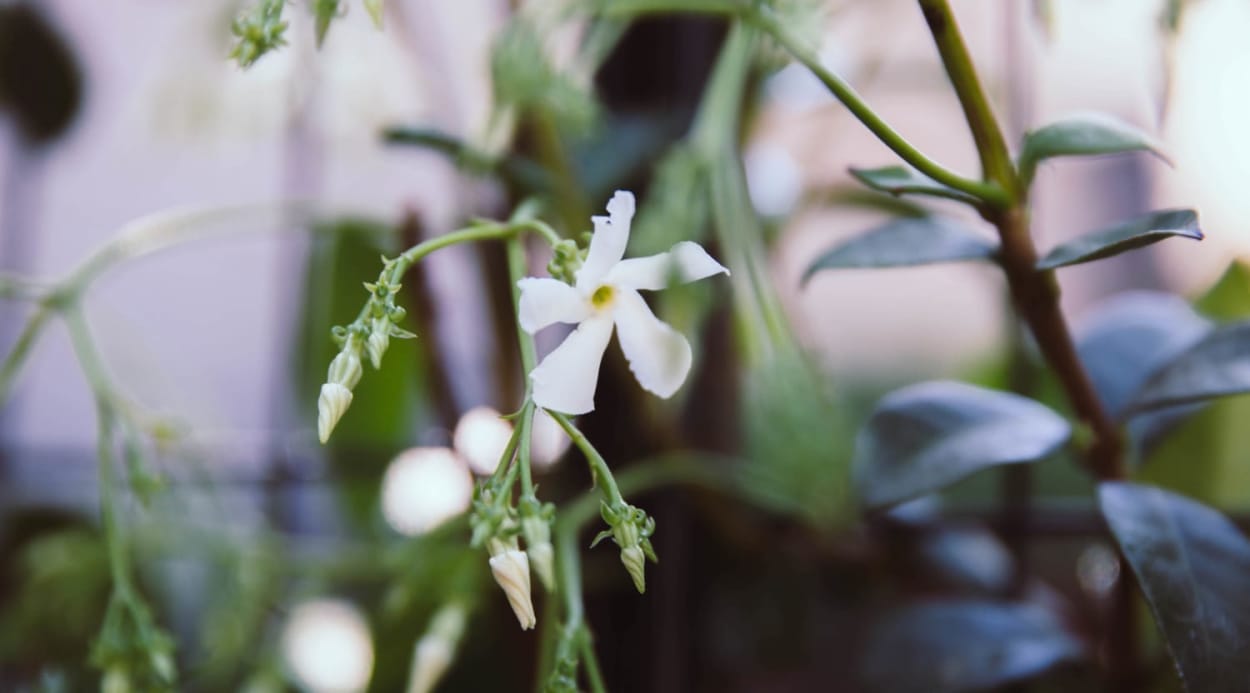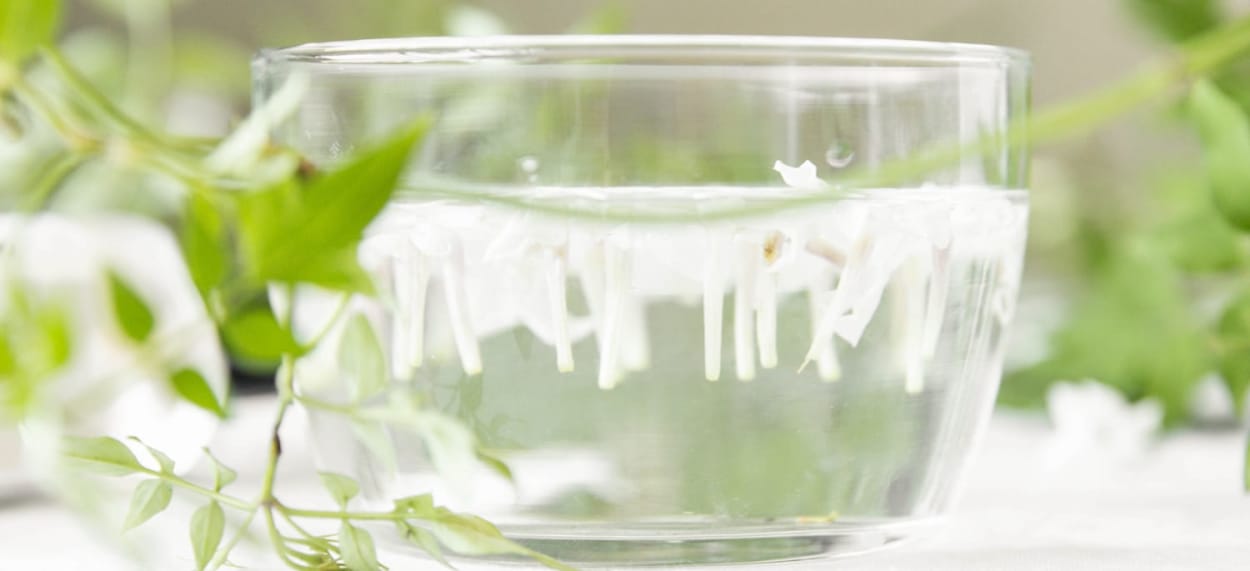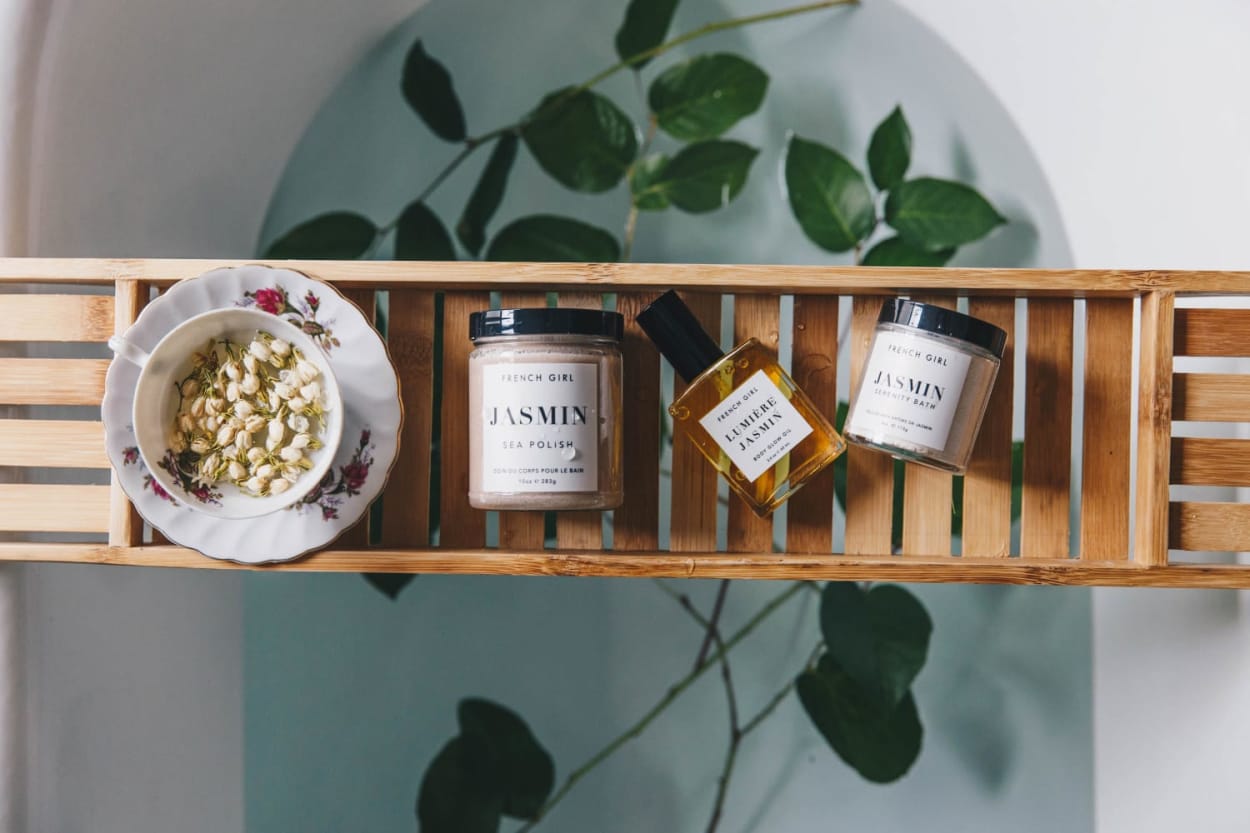
JASMIN, NATURE’S APHRODISIAC
Jasmin’s intense, exotic aroma is one of history’s oldest and most revered scents, long being associated with romance and intimacy in various cultures, earning the reputation as a desirable aphrodisiac.
Originally native to Persia and Kashmir (what is now modern-day Iran and northwestern India), Jasmin has a long and rich history in that began in ancient Persian, Indian, Chinese, and Egyptian cultures. In the Hindu tradition, the deity Kamadeva, God of Love and Desire, was known to tip his five arrows in different flowers – one being Jasmin blossoms - in order to pierce the heart through the senses. In Hindu and Muslim cultures, Jasmin became known as “the perfume of love.”

In many Asian cultures, the Jasmin flower is fundamentally intertwined with romance. In Indian culture, Jasmin blossoms or garlands adorn a new brides’ hair. In fact, so many Jasmin flowers are used during traditional Indian wedding ceremonies that the price of the flower will often rise during wedding season. In other Asian cultures, the Jasmin flower is used on a couple’s wedding night: the couple’s room will be infused with the warm, spicy scent to reduce anxiety, calm nerves, and promote sensuality.

The Jasmin flower was esteemed by Chinese royalty, and even used in sick rooms to perfume the air. The flower was also believed to rid the air of pollutants (even prior to the discovery of bacteria). The flower was traded along the Silk Road and eventually introduced to Europe around the 17th century. This beautiful, fragrant flower has remained a key ingredient in perfumery from the ancient times of Cleopatra to the reign of Louis XVI, the last King of France.
JASMIN + WELL-BEING

Jasmin has been found to have significant mood-lifting properties. In studies, Jasmin has shown to be effective in relieving depression. When inhaled, the scent boosts energy, alertness, positivity, and improves overall mood. Widely used today in aromatherapy, the sweet, sensual scent of Jasmin helps to alleviate tension and stress and uplift the mind, body, and spirit.
PRODUCTS
In skincare, Jasmin has proven antibacterial and antiseptic properties, which are beneficial in stopping the spread of acne-causing bacteria. These properties also allow Jasmin to speed up the healing process for wounds, scars, and blemishes, and can prevent potential infections. Jasmin also contains natural anti-inflammatory properties that make it ideal for healing and soothing irritated skin. Additionally, its collagen-boosting properties make Jasmin the perfect ingredient for healthy, radiant skin while its gorgeous scent lifts mood improves overall well-being.



